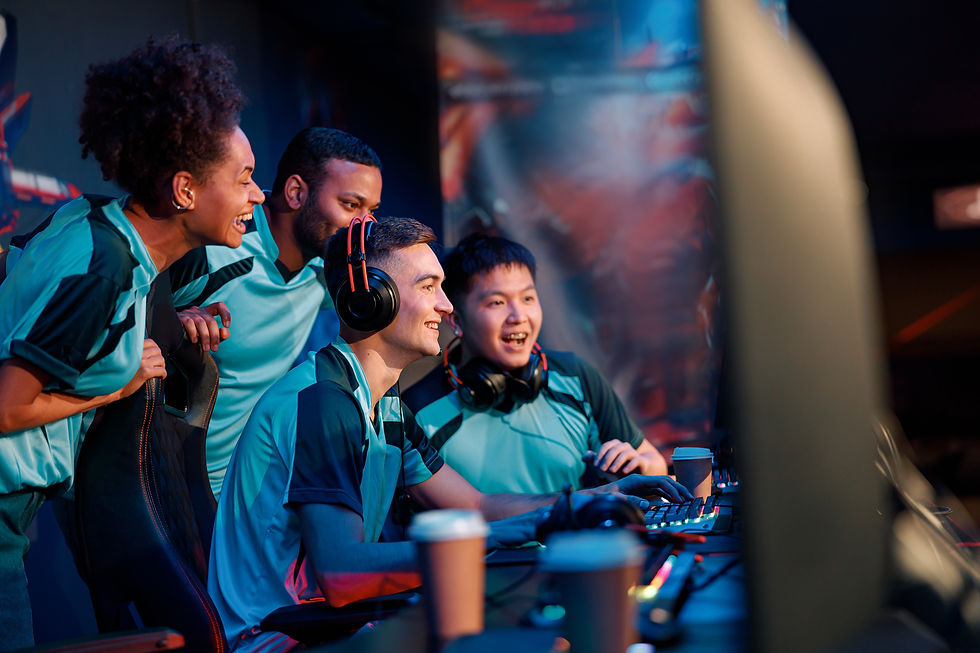Esports on College Campuses: A Growing Academic and Athletic Frontier
- Kaitlyn Nielsen
- Nov 18, 2025
- 2 min read
Kaitlyn Nielsen | Sports Editor

Within the past couple of decades, a new way to participate in sports has emerged. Esports, once a niche hobby now taking the world by storm. Universities have felt the change as well, now having to create a space for these students to grow and foster their competitive spirit. A growth in collegiate esports has marked a shift in how institutions are viewing gaming in relation to teamwork and digital culture.
Esports is an organized competition for individual or team-based video gaming. Games that are often played consist of League of Legends, Overwatch, Fortnite, and Rocket League. What separates esports from traditional gaming is the format in which these games are conducted. Many features include tournaments, professional teams, coaches, sponsorships, and even prize pools, all common features found in traditional sports and sporting events.
The switch to competitive style gaming was led by the growing popularity of platforms like Twitch and YouTube. Where individuals often take to a livestream to play games or host a gaming event. Furthermore, these livestreams are targeted towards a digitally native generation who have grown up with the world of gaming at their fingertips. As of recent, these esports competitions and championships have begun to fill stadiums, generating viewership numbers comparable to major sporting events, further solidifying the industry as a dominant player in global entertainment.
Esports started entering the college world as student-run clubs. As these clubs began to grow, the need for university support became evident. Many clubs requested support, competitive opportunities, and resources similar to those provided to traditional athletes. Robert Morris University, located in Illinois, 2014 became the first university to offer varsity esports scholarships. This decision was groundbreaking, setting a precedent that gaming was more than a fad. Other universities shortly followed, creating official leagues such as the National Association of Collegiate Esports and the Collegiate Star League.
Today, more than 200 colleges and universities within the United States offer some form of esports for their students. Some even provide partial or full scholarships to these players. Schools have gone as far as investing in art facilities that house high-performance PCs, broadcasting studios, and coaching staff for the esports teams. Moving away from the competition portion, esports has expanded academic pathways as well. Institutions now offer certifications and degrees for esports management and game design. These majors help students who are already familiar with the gaming world to grasp a better understanding of how to navigate the ever-expanding entertainment industry.
Aside from learning opportunities, esports helps universities contribute to creating a more accessible campus experience. Esports create inclusive communities for students to share interests, connect, compete, and collaborate. Unlike traditional athletes, esports provide a playing field that is accessible to all students, creating a unique space for students to feel a sense of belonging and teamwork.
As colleges react and adapt to students' interests, esports helps demonstrate how innovation can reshape campus life, athletics, and education. What once started as a student's passion has become a recognized program offering new opportunities, scholarships, and a community for a new generation of competitors.






Comments